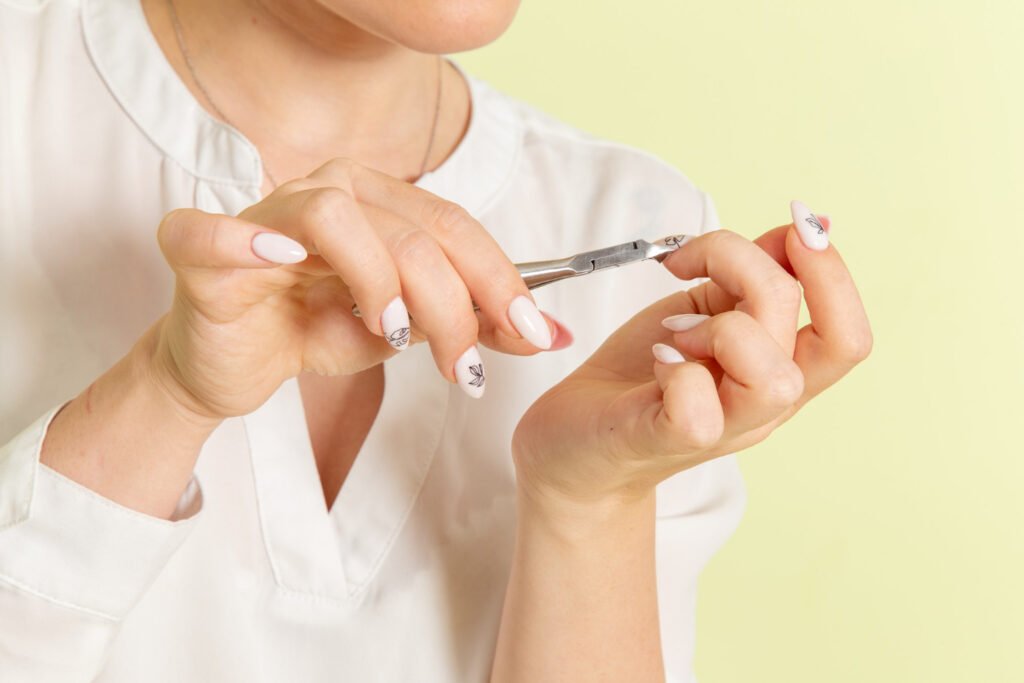
In this article
Spoon nails, or koilonychia, are a condition where nails become indented and appear scooped like a spoon. Instead of growing straight, these nails curve inward. Commonly, spoon nails are a symptom of iron deficiency anemia, but they can also be caused by inflammatory skin conditions and genetic disorders.
Symptoms of Spoon Nails
Spoon nails get their name from their spoon-like shape, featuring a curved indentation that may be vertical or horizontal. Over time, as the nails grow, this indentation becomes more pronounced. Besides their curved appearance, spoon nails are often thin, weak, and brittle. This condition can affect fingernails, toenails, or both. Although it typically develops slowly, some newborns may be born with koilonychia.
Causes of Spoon Nails
The primary cause of spoon nails is iron deficiency anemia, affecting about 5% of those with this condition. Low iron levels can reduce blood flow to the fingers and toes, weakening the connective tissue under the nail bed, leading to the characteristic spoon shape.
However, iron deficiency isn’t the only cause. Various systemic conditions can lead to spoon nails, including:
- Nutritional deficiencies: Besides iron, lack of vitamin C, zinc, copper, selenium, cysteine, and other amino acids can result in spoon nails.
- Plummer-Vinson syndrome (PVS): This rare condition combines iron deficiency anemia with difficulty swallowing due to esophageal webbing, with 37%-50% of those affected experiencing spoon nails.
- Hemochromatosis: This genetic disorder causes excessive iron accumulation, resulting in spoon nails in 49% of cases.
- Endocrine disorders: Conditions like hypothyroidism and diabetes can lead to spoon nails due to nutrient deficiencies or blood vessel damage.
- Autoimmune diseases: Although rare, systemic lupus erythematosus and Raynaud’s disease can cause spoon nails.
- Occupational hazards: Exposure to mineral oil, organic solvents, chemicals causing skin irritation, or repeated trauma can also result in spoon nails.
Skin Conditions Leading to Spoon Nails
Certain skin conditions are also significant contributors to spoon nails, including:
- Lichen planus: An inflammatory condition causing the immune system to attack cells in the nails, skin, and mouth.
- Nail psoriasis: An autoimmune condition leading to rapid skin cell multiplication, sometimes affecting the nails.
- Trachyonychia (20-nail dystrophy): A chronic nail condition causing rough, opaque nails.
- Onychomycosis: A fungal infection of the nail bed.
Diagnosis
To diagnose spoon nails, a healthcare provider will likely start with a physical exam and review your medical history, including health, family history, eating habits, and lifestyle factors. A diagnostic test known as the water drop test may be used, where water droplets are placed on the nail plate to see if they pool in the nail.
Blood tests, including a complete blood count and an iron panel, may also be conducted to check for anemia or determine if iron supplements are needed.
Treatment for Spoon Nails
Treating spoon nails involves addressing the underlying cause. While spoon nails themselves aren’t harmful, failing to treat the underlying condition can worsen them. Once the cause is treated, nails usually begin to grow normally.
For iron deficiency-related spoon nails, incorporating iron-rich foods like beans, leafy greens, and fortified grains into your diet is crucial. Iron supplements may also be recommended. Research shows that spoon nails generally heal within four to six months of starting iron supplements, though toenails may take up to a year and a half to improve.
Prevention
Preventing spoon nails primarily involves managing underlying health conditions effectively. Keeping nails short and clean, and using moisturizer or oil on them after showering can also help.
Related Conditions
Iron deficiency anemia, the most common cause of spoon nails, can lead to several other health issues, including:
- Heart conditions: Severe iron deficiency can stress the heart, causing fatigue, breathing difficulties, and heart disease.
- Infections: A lack of iron impairs the immune system’s ability to fight infections.
- Developmental delays: Pregnant individuals with iron deficiencies risk having children with developmental delays.
- Pregnancy complications: Iron deficiency increases the risk of premature birth or low birth weight babies.
- Depression: Iron affects brain chemical balance, and a deficiency can lead to mood changes.
By understanding the causes, symptoms, and treatments for spoon nails, you can take proactive steps to maintain healthy nails and overall well-being
A Quick Review
Spoon nails, also known as koilonychia, are nails that curve inward, resembling a spoon. This condition is often linked to iron deficiency anemia but can also result from other nutritional deficiencies, genetic disorders, and skin conditions. Treatment focuses on addressing the root cause, often with dietary changes and supplements











